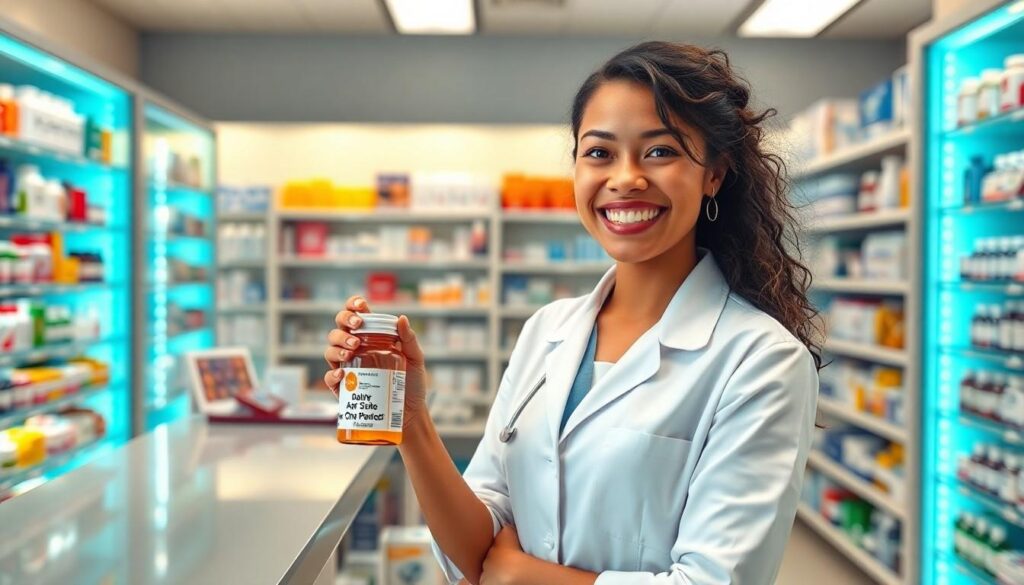Looking for a dose of humor that’s truly addictive? We’ve got the perfect prescription: drug puns! These witty wordplays might not require a doctor’s note, but they’ll definitely have you coming back for refills of laughter.
We’ve compiled the most potent collection of medication-related humor that’s guaranteed to boost your mood without any side effects. From pharmacy funnies to prescription play-on-words, these puns are just what the doctor ordered for anyone needing a quick pick-me-up. Whether you’re in the healthcare industry or just appreciate clever wordplay, you’ll find these jokes both stimulating and relaxing at the same time.
15 Prescription-Strength Drug Puns That Will Have You In Stitches
- Why did the antibiotic break up with his girlfriend? He thought she was being too cultured for him. These relationship troubles needed more than a prescription to fix.
- What did the pharmacist say to the customer who couldn’t stop yawning? “Looks like you need a dose of en-erg-y!” Sometimes the best medicine is a good laugh.
- Paracetamol and aspirin walk into a bar. The bartender asks, “What’ll it be?” They reply, “Just give us a shot – we’re both painkillers!” Bar jokes always work well with medication themes.
- My doctor prescribed me some chocolate. He said it was an antidepressant with sweet side effects. Everyone needs this kind of prescription occasionally.
- Did you hear about the constipated mathematician? He worked it out with a pencil and paper after taking laxatives. Mathematical answers sometimes require pharmaceutical assistance.
- What’s a pharmacist’s favorite type of music? Prescription drugs and rock n’ roll! Their playlists definitely hit differently.
- The anesthesiologist told me to count backward from 100. I said, “That’s a pretty tall order for someone who’s about to be knocked out.” Counting sheep would’ve been easier.
- Why don’t antibiotics tell jokes? They’re afraid of creating too many drug resistant strains! Some punchlines are better left unshared.
- A patient asked the pharmacist, “Do you have anything for hiccups?” The pharmacist suddenly slapped him across the face. “What was that for?” asked the startled customer. “Congratulations, your hiccups are gone,” replied the pharmacist. Unconventional treatments sometimes yield the best results.
- What’s a pill’s favorite exercise? Capsule-sizing! They’re always working on their pharmaceutical fitness.
- My friend became addicted to cold medicine. He’s reportedly doing much better now, though he’s still suffering from withdrawal symptoms. Recovery happens one day at a time.
- Why did the pharmacy hang up a mirror next to the vitamin C display? For reflection purposes! Vitamin puns really reflect our sense of humor.
- What do you call a sleepy pharmacist? A dope dealer! Their job requires staying alert even though the drowsy surroundings.
- The doctor prescribed me alphabet soup for my vitamin deficiency. Four words: best medicine ever! Nutritional supplements come in many forms.
- Why couldn’t the pharmacist date the pill counter? They kept having counting issues in their relationship! Sometimes professional boundaries exist for good reasons.
The History Of Drug Puns In Popular Culture
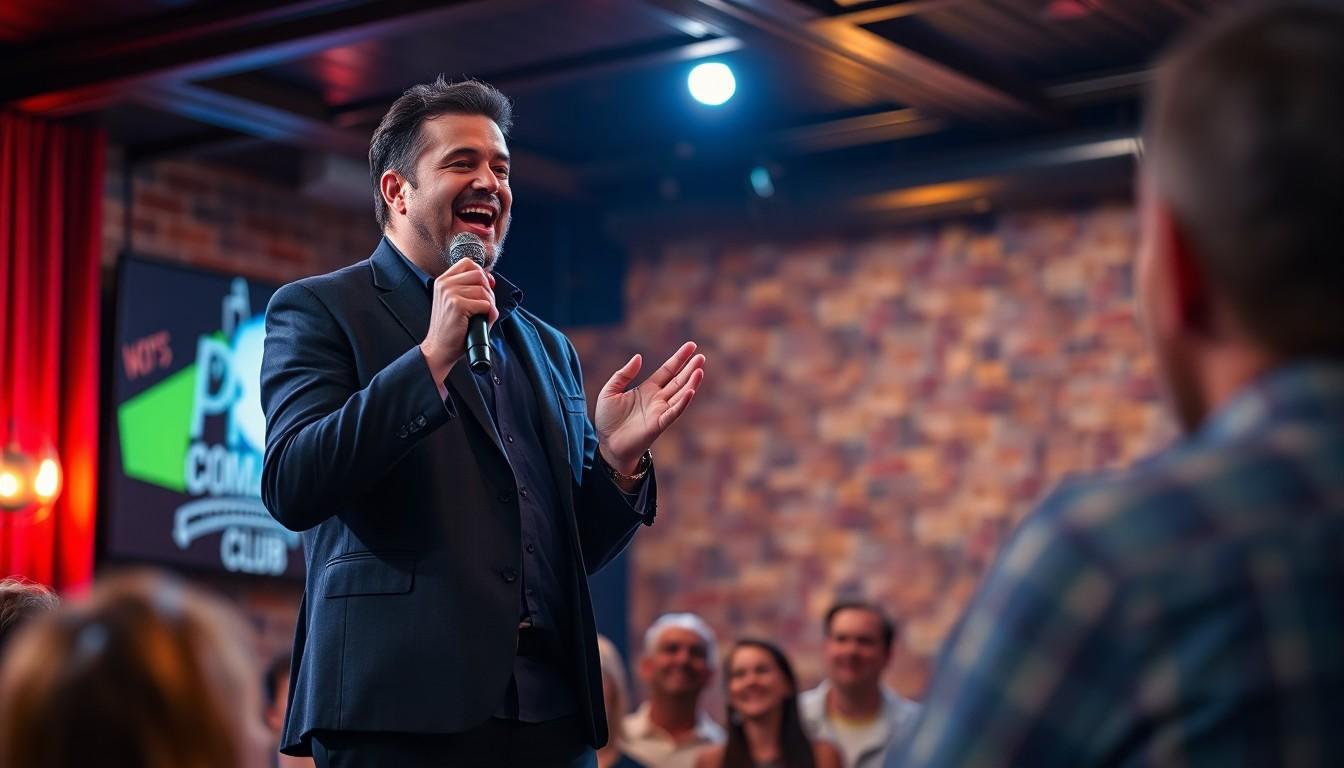
Drug-related humor has evolved significantly throughout different cultural and historical periods, reflecting changing societal attitudes toward substances and medications. We can trace the roots of pharmaceutical comedy from the countercultural movements of the 1960s through today’s mainstream entertainment.
Pharmaceutical Humor In Television And Movies
Television shows and films have embraced drug puns and pharmaceutical references as reliable sources of comedy for decades. “That ’70s Show” frequently incorporated marijuana humor with character Red Foreman commonly referring to cannabis as “dope,” authentically reflecting the slang terminology of that era. During the 1980s, movies featuring the “Cocaine Cowboys” introduced terms like “coke” and “crack” into the mainstream lexicon, sometimes using these references humorously to highlight drug culture’s impact on urban communities. Productions from this period often employed pharmaceutical wordplay to address serious topics through the lens of comedy, allowing audiences to engage with otherwise taboo subjects in an accessible format.
Medical Comedy In Stand-Up Routines
Stand-up comedians have consistently used drug-related humor to challenge social norms and address controversial topics. Comedy legends Richard Pryor and George Carlin incorporated personal experiences with substances into their performances, using humor to critique society’s relationship with drugs. Cheech Marin and Tommy Chong built their entire comedic brand around marijuana humor in the 1970s and 1980s, helping integrate drug-related comedy into mainstream entertainment. Modern comics continue this tradition while adapting to evolving contexts and terminology—where “dope” once primarily referred to marijuana, it may now indicate heroin or other substances in contemporary routines. Pharmaceutical humor appears in stand-up through jokes about prescription medication side effects and the sometimes absurd nature of pharmaceutical advertising, offering comedic commentary on healthcare complexities and modern medicine’s role in everyday life.
Medicine Cabinet Masterpieces: Puns For Common Medications
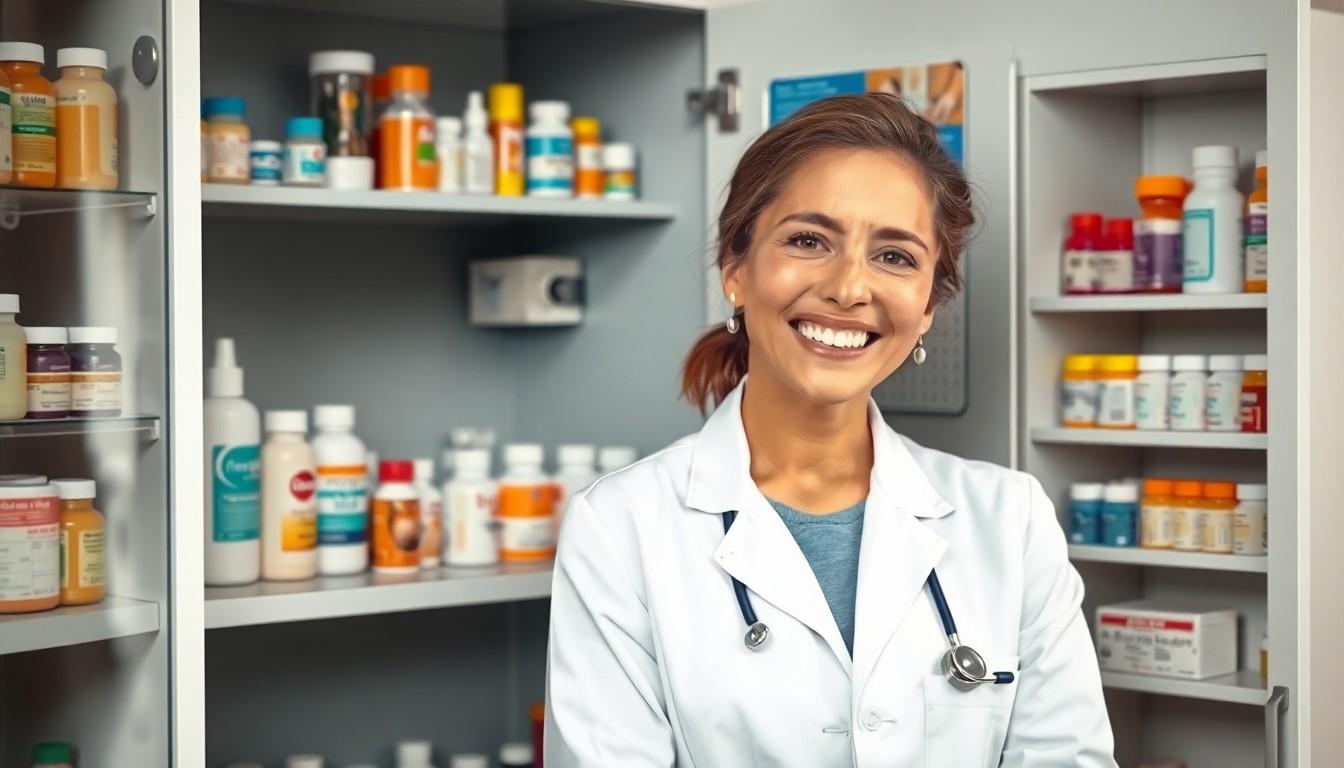
Aspirin And Pain Reliever Wordplay
Aspirin and pain relievers provide perfect punning material for those seeking a good laugh without the headache. “Why did the aspirin go to the party? Because it was a pain to miss!” captures the essence of these medication-based jokes that work on multiple levels. Pain relievers themselves become comedic gold when personified in puns like “Why did the pain reliever go to therapy? It had a lot of ‘aches’ to work through.” These witty wordplays transform everyday medications into characters with relatable problems, making them instantly memorable and shareable. Their universal familiarity makes aspirin puns particularly effective, as almost everyone has reached for these tablets at some point, creating an immediate connection with the humor.
Antibiotic And Prescription Drug Jokes
Antibiotics and prescription medications offer even more sophisticated options for pharmaceutical humor. “Why did the antibiotic go to school? To learn how to ‘cure’ its ignorance!” demonstrates how medical terminology creates natural opportunities for clever wordplay. Prescription medications inspire jokes like “What did the prescription say to the pharmacist? ‘Fill me up!'” that play on the relationship between healthcare providers and their patients. Doctors themselves become part of the punchline in jokes such as “Why did the doctor prescribe a joke? Because laughter is the best medicine, and he wanted to give his patients a ‘prescription’ for laughter.” Research actually supports this concept, suggesting that humor can be beneficial in therapeutic settings, including those involving substance use disorders, by improving coping mechanisms and providing a lighter perspective on challenging situations. Many online collections, including those from Meredith Plays and Punspedia, offer extensive compilations of these medication-related quips for healthcare professionals and humor enthusiasts alike.
Over-The-Counter Comedy: Everyday Drug Store Puns

The drugstore isn’t just a place to pick up medications—it’s also a goldmine for humor. We’ve collected some of the funniest over-the-counter jokes that don’t require a prescription to enjoy.
Pharmacy Counter Quips
Pharmacy counters generate some of the most amusing wordplay in the medication industry. “Why did the pain reliever go to the party? Because it was a real ‘pain’ to miss!” represents the classic format of these clever quips. Pharmacists often use these jokes to lighten the mood while dispensing medications. Many healthcare professionals incorporate this humor to build rapport with patients, making the experience more comfortable. Research shows that humor can improve communication and trust in relationships, particularly between healthcare providers and patients. Collections like those from Meredith Plays feature hundreds of these pharmacy-themed one-liners, specifically designed for sharing during those moments waiting at the counter.
First Aid Kit Wisecracks
First aid supplies provide fertile ground for bandage-wrapped humor. “What did the antibiotic say to the virus? ‘You’re just a ‘germ’ of an idea!'” exemplifies the playful personification common in these jokes. Adhesive bandages, antiseptics, and gauze become characters in their own comedic universe through these wisecracks. Online resources like Punspedia offer over 200 such puns involving laboratory experiments and chemical reactions. These jokes serve more than just entertainment value—studies indicate humor can have positive effects on memory, learning, and psychological well-being. First aid kit puns transform mundane medical supplies into sources of laughter, making them especially popular among healthcare professionals who deal with these items daily. The therapeutic benefits of such humor extend beyond simple amusement, creating opportunities for stress relief in medical settings.
Prescription For Laughter: Drug Puns In Medical Settings
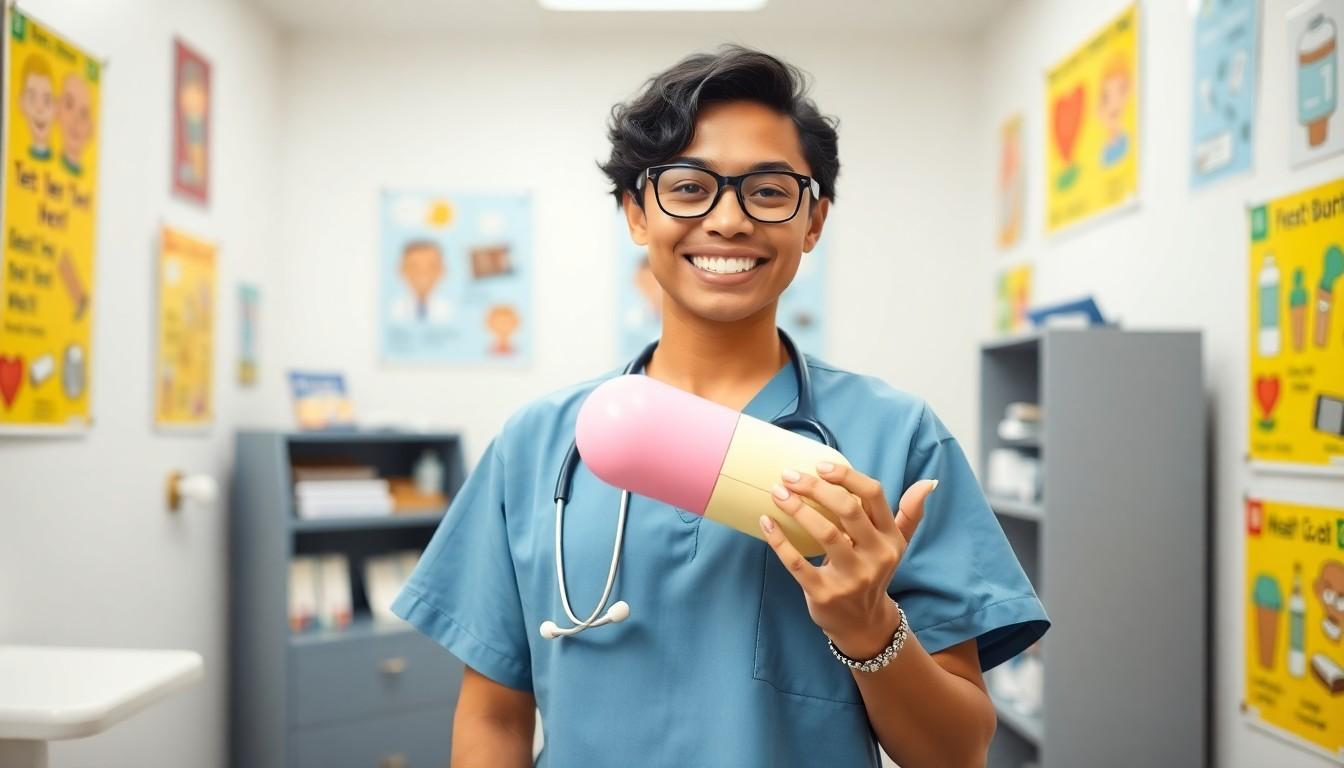
Humor plays a important role in medical environments, where wordplay and puns can help lighten the mood in otherwise stressful situations.
Doctor’s Office One-Liners
Doctor’s offices serve as prime breeding grounds for pharmaceutical humor, with healthcare professionals often using wordplay to ease patient anxiety. Medical practitioners have incorporated playful phrases like “I’m just a pill in love!” to create a more relaxed atmosphere during consultations. Research suggests that these light-hearted interactions can make complex medical discussions more relatable for patients. Physicians frequently deploy phrases such as “Life is better with a little pharma-joy!” to break tension before delivering diagnoses or treatment plans. Many clinics even display humorous posters containing medical puns, recognizing the therapeutic value of laughter in healing environments. These intentional moments of levity help build rapport between doctors and patients while making intimidating medical terminology more accessible.
Hospital Humor That’s Hard To Swallow
Hospital settings, even though their serious nature, often embrace wordplay as a coping mechanism for both staff and patients. Medical students and professionals sometimes use cynical humor to process the challenging aspects of healthcare, though this approach requires careful consideration of context and audience. Studies on medical culture indicate that humor serves as an important outlet for stress relief among hospital staff dealing with high-pressure situations daily. Pharmacy departments particularly embrace puns, with centuries of tradition incorporating wordplay into professional literature to make complex pharmaceutical concepts more digestible. Medical device naming conventions also frequently employ metaphors and puns, demonstrating how deeply ingrained wordplay is within healthcare communication systems. While maintaining professionalism remains paramount, thoughtfully delivered humor can transform intimidating hospital experiences into more manageable ones for patients handling treatment journeys.
Side Effects May Include Uncontrollable Giggling: Wordplay For Specific Conditions
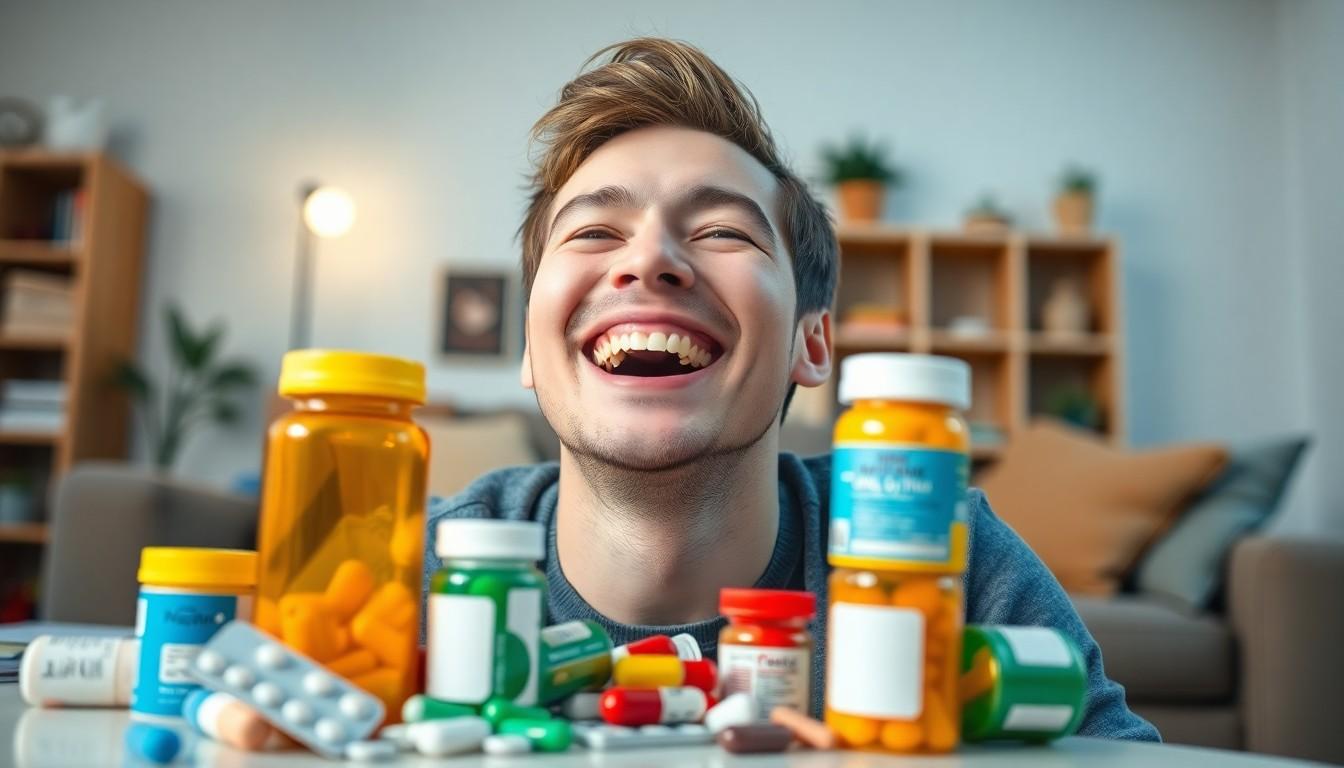
Finding humor in health challenges can be therapeutic, and condition-exact drug puns offer a unique way to lighten the mood while acknowledging medical realities.
Mental Health Medication Mirth
Mental health medication puns provide a lighthearted approach to a serious topic, creating moments of relief for those handling treatment journeys. Research confirms that humor significantly improves communication, trust, and overall well-being in patients with anxiety disorders, mood disorders, and substance use disorders. Antidepressant jokes like “Why did the SSRI go to therapy? It had too many ‘uptake’ issues!” can help patients and providers connect over shared experiences. Anxiety medication wordplay such as “My Xanax and I have a very ‘relaxed’ relationship” offers a way to normalize discussions about mental health treatments. These humorous takes don’t diminish the importance of proper treatment but rather create breathing room in conversations that can otherwise feel overwhelming.
Chronic Condition Comedy
Chronic condition humor serves as a powerful coping mechanism for individuals managing long-term health challenges. People living with chronic conditions often use drug puns to gain new perspectives on their daily medication routines. Diabetes-related quips like “My insulin and I are in a committed relationship—we can’t go a day without seeing each other!” demonstrate how patients transform their necessary treatments into sources of amusement. Autoimmune medication jokes such as “My immunosuppressants and I have an understanding—they suppress my immune system, I suppress my urge to complain about taking them” showcase the creative ways patients find humor in their treatment protocols. These puns help patients improve their psychological well-being by finding meaning in the incongruities and contradictions associated with managing chronic conditions. Humor in this context isn’t just entertaining—it actively helps individuals handle stress and tension while building resilience for their ongoing health journeys.
How To Use Drug Puns Responsibly In Social Situations

Drug puns can be a source of laughter, but they require thoughtful consideration before sharing. We’ll explore how to navigate this humor responsibly in different social contexts.
Keeping It Appropriate For Your Audience
Knowing your audience is essential when sharing drug-related humor. We recommend assessing the demographics and sensitivities of the people you’re interacting with before cracking pharmaceutical jokes. Drug puns may not resonate well with individuals who have experienced substance use disorders or hold strong opinions against drug-related humor.
Context plays a crucial role in determining appropriateness. Consider the setting and purpose of your interaction carefully before incorporating medication wordplay. Professional or educational environments typically call for more restraint, while casual social gatherings might offer more flexibility for playful pharmaceutical references.
Always gauge the room’s receptiveness before launching into drug-related humor. Pay attention to social cues and be prepared to pivot your conversational approach if you sense discomfort from listeners.
When To Avoid Medication Humor
Sensitive situations demand extra caution when it comes to drug puns. Avoid using pharmaceutical jokes around individuals who may have personal or family struggles with substance abuse, as such humor can be triggering and potentially harmful to their wellbeing.
Professional settings generally aren’t suitable for drug-related humor. Work environments, schools, and formal gatherings typically require more conventional conversational approaches that maintain appropriate boundaries.
Serious health discussions call for a respectful tone rather than levity. If the conversation involves addiction, medical treatments, or health concerns, we suggest maintaining gravity and compassion by steering clear of drug puns altogether.
Therapeutic contexts require special consideration. While humor can benefit certain recovery programs for substance use disorders by helping resolve contradictions and improve coping mechanisms, it must be implemented thoughtfully and under professional guidance to avoid causing offense or discomfort.
Crafting Your Own Pharmaceutical Puns: A Step-By-Step Guide

Creating your own pharmaceutical puns isn’t as complicated as reading a medicine label. We’ve put together this simple guide to help you develop prescription-strength wordplay that’ll have everyone in stitches. Follow these steps to become a master of medication-based humor.
Understand the Basics of Puns
Pharmaceutical puns rely on clever wordplay using drug names, medical terminology, and health concepts. The best puns take advantage of homophones (words that sound alike) and double meanings to create unexpected connections. Start by familiarizing yourself with common drug names and medical terms that might lend themselves to humorous twists.
Use Wordplay with Drug Names and Functions
Drug names offer fertile ground for creating hilarious puns. Try connecting a medication’s function to an everyday situation for maximum effect. For instance, “Why did the aspirin join the football team? It wanted to tackle headaches!” This pun cleverly links aspirin’s pain-relieving properties with sports terminology, creating an unexpected and humorous connection.
Play with Medical Terminology
Medical jargon can transform into comedy gold with a little creativity. Terms used in pharmacy settings often have potential double meanings that work perfectly for puns. “Why don’t pills gossip? Because they’re sealed tight!” demonstrates how pharmaceutical packaging (being sealed) connects to keeping secrets, making for a simple yet effective joke.
Incorporate Pharmacist Roles
Pharmacists’ daily activities provide excellent material for puns. Their expertise in mixing medications, providing consultations, and ensuring proper dosing can be applied to non-medical contexts for humorous effect. “Why was the pharmacist great at dating? It knew how to mix the right chemistry!” uses the pharmacist’s skill with chemical compounds to joke about romantic compatibility.
Use Common Phrases with a Medical Twist
Taking everyday sayings and giving them a pharmaceutical spin creates instantly recognizable humor. Look for common expressions that could incorporate drug or medical terminology. “What’s a medicine’s favorite type of bread? Dose-ted!” shows how replacing one word in a common item (toasted bread) with a medication-related term (dose) creates an accessible pun.
Create Puns Around Drug Effects and Side Effects
Medication effects and side effects offer many opportunities for wordplay. The intended and unintended consequences of taking medications can be reimagined in humorous contexts. “What’s a drug’s favorite party trick? Making side effects disappear!” plays with the concept of side effects in an unexpected way, creating a surprising connection to magic tricks.
Test Your Pharmaceutical Humor
After creating your puns, test them with an audience who’ll appreciate the pharmaceutical angle. Healthcare professionals might catch nuances that others miss, while general audiences might prefer simpler medication references. Pay attention to which jokes get the biggest laughs and refine your approach accordingly.
| Type of Pun | Example | What Makes It Work |
|---|---|---|
| Drug Function | “Why did the pill go to school? It wanted to be a smartie!” | Connects pills to becoming smart/candy |
| Medical Wordplay | “Why was the cough syrup a bad comedian? It was always dry!” | Plays on “dry cough” vs “dry humor” |
| Pharmacist Role | “Why don’t pharmacists ever get lost? They always follow the prescription!” | Uses prescription as both directions and medical orders |
| Common Phrase | “What do you call a pill that tells bad jokes? A pun-demic!” | Combines “pill” with “pandemic” for wordplay |
By following these guidelines and studying successful examples, we’ve seen that anyone can create memorable pharmaceutical puns. Remember that the best drug-related humor often comes from unexpected connections between medical concepts and everyday situations, creating that perfect moment of surprise that makes a great pun work.
The Most Potent Drug Puns On The Internet Today
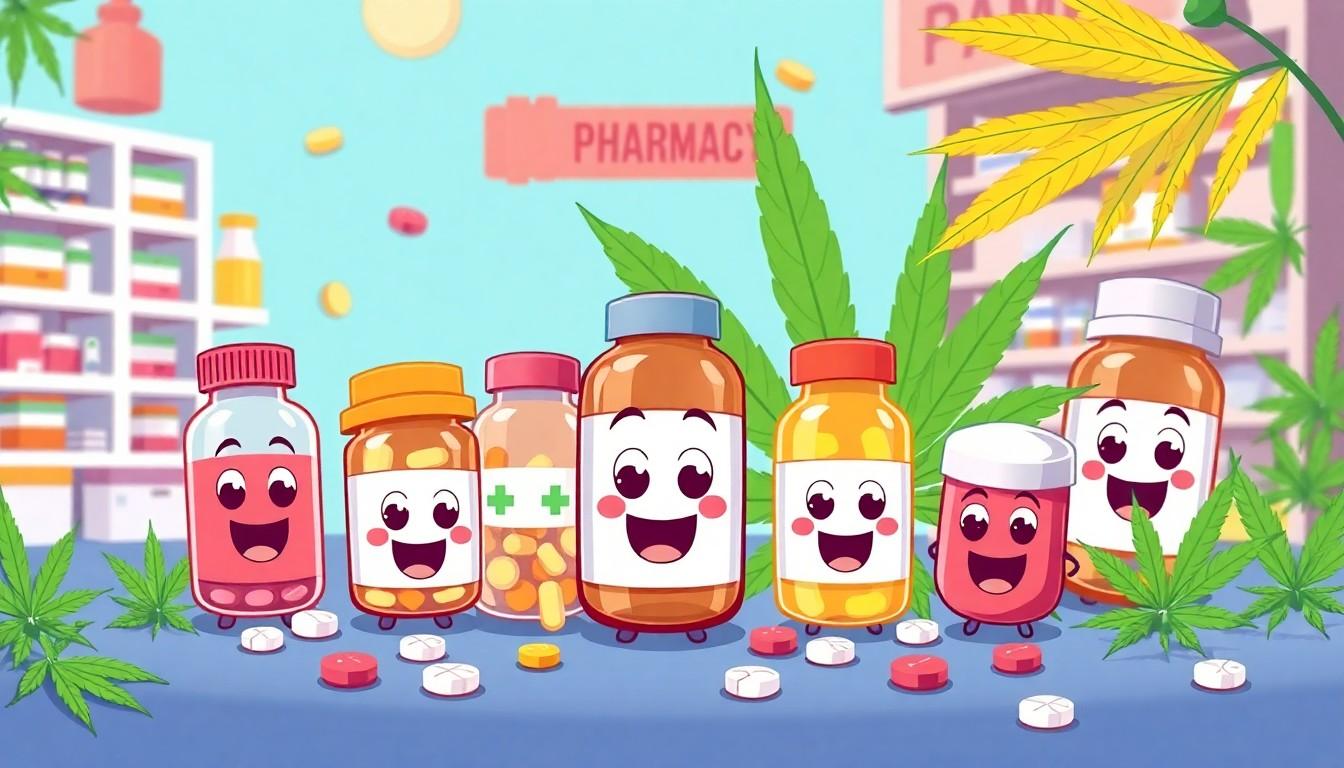
Pharmaceutical Puns
We’ve gathered some of the most clever pharmaceutical puns that are sure to cure your humor deficiency. The educational ambitions of medications come through in “Why did the pill go to school? It wanted to be a smartie!” Sports enthusiasts will appreciate the aspirin that “joined the football team because it wanted to tackle headaches.” Privacy concerns aren’t an issue with pills because “they don’t gossip—they’re sealed tight!” Dining preferences get a pharmaceutical twist when prescriptions prefer their dinner “with no side dishes.” Dating scenes become more interesting with pharmacists who excel because “they know how to mix the right chemistry.” Beach trips aren’t ideal for tablets since “they don’t want to get wet and dissolve!”
Drug and Medication Puns
Drug-related wordplay offers another dose of humor that’s tough to resist. Party tricks take on a new meaning with drugs that specialize in “making side effects disappear.” Comedy careers aren’t suited for cough syrup because “it was always dry!” Joke-telling pills earn the clever nickname “pun-demics.” Public transportation reveals drug preferences when medications “sit at the back of the bus because they don’t want to be taken first.” Culinary preferences show up in a medicine’s favorite bread type: “dose-ted!”
Stoner and Cannabis Puns
Cannabis culture provides fertile ground for some of the most hilarious drug-related humor online. Party preparation takes an unexpected turn when a stoner “brings a ladder because they heard the drinks were on the house.” Plant camaraderie shines through when “one bud tells another they’re a pretty tight-knit bunch.” Measurement systems get reimagined with stoners using a “high-pot-in-use scale.” Relationships between substances and users turn poetic when “the drug says to the addict: I’ve got you under my skin.” Educational aspirations appear again when “the joint goes to school because it wanted to be a little boulder.” Post-breakup cannabis enthusiasts become “single and ready to jingle!”
Conclusion: The Perfect Dose Of Humor
Drug puns offer a unique prescription for laughter in our daily lives. They’re more than just clever wordplay – they provide a therapeutic escape and create bonding opportunities among healthcare professionals patients and humor enthusiasts alike.
We’ve seen how these witty quips can transform stressful medical environments lighten difficult conversations and even serve as coping mechanisms for those facing health challenges.
Whether you’re crafting your own pharmaceutical jokes or enjoying our curated collection remember that the best medicine often comes with a healthy dose of humor. So keep these drug puns in your personal first aid kit – no prescription needed for this effective mood enhancer!
Frequently Asked Questions
What are drug puns?
Drug puns are humorous wordplay jokes that use pharmaceutical terms, medication names, or healthcare concepts to create comedy. They combine medical terminology with everyday language to produce clever, lighthearted jokes that can be enjoyed by healthcare professionals and the general public alike. These puns offer a way to find humor in medical contexts without any actual side effects.
Why are drug puns popular among healthcare professionals?
Healthcare professionals often use drug puns as a coping mechanism in stressful medical environments. These jokes create moments of levity during challenging situations, help build rapport with patients, and foster camaraderie among staff. Research suggests that appropriate humor in medical settings can improve communication, reduce anxiety, and make complex medical discussions more relatable for patients.
Can drug puns have therapeutic benefits?
Yes, drug puns can have genuine therapeutic value. They help normalize discussions about health conditions, reduce anxiety in medical settings, and provide emotional relief. For people managing chronic conditions or mental health challenges, condition-specific humor serves as a coping tool that fosters resilience. Laughter triggered by these puns can also temporarily reduce stress and boost mood.
What are some examples of popular drug puns?
Popular examples include: “Why did the pill go to school? It wanted to be a smartie!” and “Why did the aspirin join the football team? It wanted to tackle headaches!” Other classics are “The pharmacist is a pill pusher” and “The antibiotic broke up with me because our relationship wasn’t working anymore.” These puns playfully personify medications or play on pharmaceutical terminology.
How should drug puns be used responsibly?
Use drug puns thoughtfully by knowing your audience and context. Avoid them around people with substance use disorders or during serious health discussions. Consider cultural sensitivities and professional settings where such humor might be inappropriate. While drug puns can lighten mood and build connections, they should never mock conditions, treatments, or individuals’ experiences with medication.
How can I create my own drug puns?
To create your own drug puns, start by learning medication names and their functions. Look for words that sound similar to drug names or have multiple meanings. Incorporate common phrases with a medical twist, like “That’s a hard pill to swallow.” Test your puns with friends to refine your delivery. The best drug puns cleverly connect pharmaceutical concepts with everyday situations in unexpected ways.
Where did drug puns originate in popular culture?
Drug puns have evolved alongside changing societal attitudes toward medications and substances. They gained popularity through television shows like “That ’70s Show” and films such as “Cocaine Cowboys” that used humor to address drug-related topics. Stand-up comedians like Richard Pryor and George Carlin further popularized pharmaceutical humor by incorporating their personal experiences into routines that challenged social norms around medication and substance use.
Do pharmacists actually use drug puns?
Yes, many pharmacists use drug puns in their daily work. These jokes help lighten the mood at pharmacy counters, make medication discussions less intimidating, and build rapport with customers. Pharmacy humor, like “I’m not addicted to brake fluid—I can stop anytime,” creates connections between healthcare providers and patients while making the medication dispensing process more enjoyable for everyone involved.

